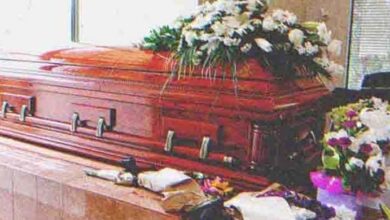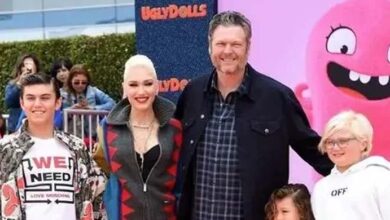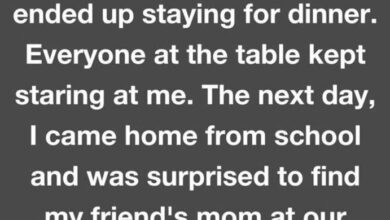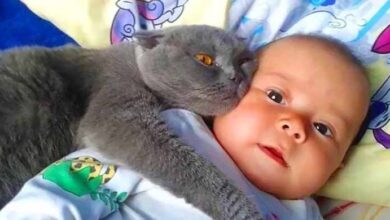Woman Rescues a Man Who Has Lost His Memory and Tells Him She is His Fiancée
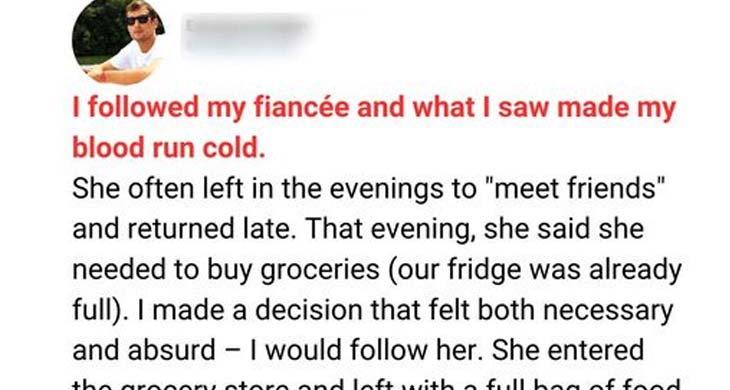
After a robbery left me with amnesia, I woke up to a girl claiming to be my fiancée. Back home, odd clues piled up: my dog’s hostility towards her, her ignorance of our home, and hidden photos of a stranger in the attic. Something wasn’t right.
My name is James, and I’m a 30-year-old banker. My life was a series of daily routines until one Tuesday changed everything. I arrived at the train station at 8:30 a.m. as always, cherishing the calm before my day started.
I found my usual spot on the platform, away from the crowd, and started reading a book. My phone buzzed in my pocket. It was a message from my fiancée, my main source of love and support since I had no family left.
She wrote, “I miss you.”
I replied, “I miss you too,” and went back to my book.
Two men approached me as I read. They looked rough and made me uneasy, but I tried to remain calm.
×
“Hey, man,” one of them yelled. They moved closer, scanning me.
“Any problems, guys?” I asked, trying to keep the tone polite but firm.
“That’s for you to tell us, man,” the taller one said mockingly. It was clear they were not here for a friendly chat.
The shorter guy tried to grab my bag. “What’s in here?” he demanded.
“Listen, guys, I don’t want any trouble. Let’s just walk away,” I said, my hand tightening on my things.
“No, it doesn’t work like that. Give us the bag,” the shorter one insisted. I refused to give in. This was about principle. As we struggled over the bag, a girl approached, looking concerned.
The men panicked at her approach, briefly loosening their grip, but it was such a sudden movement that I lost my balance and fell onto the track, my head hitting the ground hard.
Pain engulfed me, and my vision blurred…
***
I woke up in a hospital. Everything was blurry at first. A man in a white coat leaned over me. A doctor, I realized. The room was stark and sterile.
Then I saw her, a beautiful girl holding my hand. She was a stranger, yet she held on as if we had a lifetime of memories together.
The doctor shone a light into my eyes, but I was distracted by the girl’s worried expression. She tried to comfort me, but her name was a mystery to me.
ADVERTISEMENT
Words started making sense gradually, like a radio finding its frequency. “Sir, do you understand what I’m asking?” the doctor inquired.
“I didn’t hear you,” I replied, struggling with each word. I tried to swallow, but my throat was a desert.
“Do you remember your name?” he persisted.
“James,” I answered, a sliver of relief cutting through the fog of confusion.
“And your date of birth?” he continued. The numbers came to me surprisingly easily.
As the doctor probed further, asking about the sky’s color and the current president, some answers came quicker than others, making me frown. Bits of my life, like my street and the touch of a dog’s fur, came back to me, but many details remained out of reach.
The doctor then explained, “You’ve been in a coma for five days due to a traumatic brain injury.” He went into some more details, but I didn’t get all the medical jargon.
Turning to the girl beside me, whose presence was both comforting and confusing, I asked, “Who is this?”
Tears flowed as she answered, “James, it’s me, Lucy,” but her name sparked no recognition.
“Lucy… who?” I repeated, squinting my eyes at her face.
“Your fiancée,” she said, showing a ring that held no meaning for me.
“I don’t know her or that ring,” I confessed to the doctor, feeling lost.
“You might have amnesia,” the doctor suggested, promising further tests and reassurance.
Alone with Lucy, her worried eyes turned to me again. “Do you not remember me?” she asked, only adding to the weight of my confusion.
“No, sorry,” I replied, closing my eyes.
The doctors’ tests later confirmed that I was fine physically, but they had no real answers for my amnesia. It could be temporary or permanent, which left me feeling fragmented and even more lost. Lucy’s attempts to conceal her despair did little to ease the heavy silence between us.
After two weeks in the hospital, I was discharged. Despite my eagerness to leave, apprehension about what lay ahead lingered. Lucy shared stories of our lives, but they felt like tales from someone else’s existence, making me feel even more disconnected.
I hoped returning home might spark some recognition of my life with Lucy, but as we arrived at my house, I recognized the place immediately. However, I couldn’t be happy about it, as it only highlighted the gaps in my memory.
Lucy unlocked the door, and Luther, my dog, greeted me with boundless energy. His excitement was a brief moment of joy. I knew him, but he started barking at Lucy and shying away from her immediately.
Dogs are known for their judgment of character, and Luther’s behavior felt like a warning sign I couldn’t ignore. “I’m so sorry,” I still apologized to Lucy after trying to calm Luther down.
Her attempt to brush it off only made me more uneasy.
Inside the house, the familiarity clashed with a sense of foreignness. It was mine, yet it felt like I was stepping into another person’s life. Lucy’s presence also didn’t fit into the fragmented memories I was struggling to piece together.
“Do you have any photos of us?” I inquired, hoping for something to trigger my memory.
Lucy shook her head. “We don’t have any joint photos,” she said, shrugging, and explained her discomfort with photography. I thought it was strange, but I had no reason to doubt her.
As the evening progressed, Lucy’s unfamiliarity with the kitchen struck me as strange for someone who supposedly lived here. Her explanation that we had only recently moved in together did little to quell my doubts.
After dinner, the absence of her personal items and Lucy’s hesitant behavior while looking for a towel in our closet only added to my suspicions. I found an embroidered towel with the letter ‘E’ that sparked a vague sense of familiarity, but when I offered it, she refused to take it.
Her actions, coupled with the missing pieces in our home, painted a picture that didn’t quite add up. The inconsistencies in Lucy’s story, Luther’s unexpected reaction, the absence of photographs, and now the mysterious towel all pointed towards a reality that contradicted the life Lucy described.
As I stood there, lost in thought with the sound of the shower running in the background, I couldn’t shake off the feeling that crucial pieces of my life were missing.
I walked around our living room, taking in the familiar yet somehow foreign sights: the furniture, books, and trinkets. Despite recognizing everything, a profound sense of something missing lingered.
Sitting on the couch, I closed my eyes, hoping for a spark of memory, only to find an engulfing darkness. The abrupt silence of the shower snapped me back to reality, reminding me of the facade I felt compelled to maintain for Lucy’s sake.
She emerged, commenting, “We’re out of shampoo. I’ll go buy some.”
“Can’t it wait until morning?” I questioned, puzzled.
“No, I need to go now,” she insisted, her tone soft yet determined.
It took her a long time to return, although the convenience store was nearby. I was in bed when she finally came back and moved quietly through the room. The shower ran again, and then, the unfamiliar scent of shampoo raised more questions than it answered.
The next morning, I found myself lost in thought at the kitchen table, listening to the rain outside, while Lucy cooked. My gaze landed on a “Spain” magnet on the fridge, triggering a faint memory of being there.
“It would be nice to be in Spain now. No rain or cold,” I mused aloud, more to myself than to Lucy.
Her response caught me off guard. “Probably, I have never been abroad,” she said, her back to me as she continued cooking.
Her words troubled me. I remembered Spain, walking through a zoo, laughter – though blurry, these memories felt real. But Lucy wasn’t with me.
We ate breakfast in an awkward silence. After Lucy left for work, the unease in my stomach grew. The inconsistencies in our stories, coupled with my fragmented memories, made me question everything I thought I knew.
Alone, with the rain as my only companion, I contemplated the daunting task of piecing together my past. I scoured the house for photographs, hoping they might ignite any memory. My efforts led me to the attic.
Yet, despite my thorough search, I found no photographs, but I was surprised by Luther, who followed me. His barking echoed loudly in the cramped space.
“Luther, quiet,” I attempted to calm him, but his excitement caused a box to tumble from a shelf, striking me. I rubbed my sore head as I coughed at the cloud of dust that filled the attic. After it cleared, I saw that photographs had spilled out onto the floor.
I eagerly sifted through them, finding images of a young blonde woman whose presence tugged at my memory. I wasn’t sure who she was, but she was so much more familiar to me than Lucy.
When Lucy returned from work, I presented the found photographs. Her reaction shifted from surprise to nervousness.
“Where did you get this?” she asked, her voice trembling.
“In the attic,” I responded, watching her closely.
“Why did you go up there?” she inquired, pursing her lips.
“I was looking for anything to help me remember.” Pointing to the photographs, I asked, “Do you know who this girl is? I thought you might recognize her.”
Lucy hesitated, and I saw her gulping. “This… this is my… deceased sister,” she revealed, exhaling. I apologized quickly, and she asked me to return the photos to the attic. I respected her wishes readily.
After dinner, Lucy mentioned a sudden plan to meet a friend. “She just called. I’m sorry I didn’t mention it earlier,” she explained before leaving with a quick kiss.
She came home way too late again.
That night, a vivid dream transported me to a zoo bathed in sunlight, with the girl from the photographs—Lucy’s claimed deceased sister—by my side. Our shared laughter and the warmth of the day felt unmistakably real.
Awakening from the dream, the realization dawned on me that these were not mere figments of imagination but actual memories resurfacing. Lying next to Lucy, the significance of this epiphany weighed heavily upon me, but I didn’t know what to do.
The following day, I tried to act normal, but I thought about my dream often. Later that night, Lucy, once again, had to go out – for groceries this time, although we had a full fridge. I’d had enough and decided to follow her.
***
Lucy had stopped at the grocery store, making me question my sanity, but she didn’t go home afterward. Instead, I tailed her to an isolated, dilapidated house. Concealing my car, I watched her enter with a small bag.
My heart raced as I approached on foot, only to discover, through a window, Lucy and the supposedly deceased girl from the photos, very much alive, but tied to a chair. The shock of this sight left me backing away from the glass.
Finally, I decided to hide for a while. After Lucy left, I entered the house, looking for the girl.
“James!” she exclaimed upon seeing me. Her recognition and relief were palpable, yet I was overwhelmed with confusion.
“Where do you know me from?” I asked, my voice shaking. But I still got closer and untied her. Her weak hands went straight to my face.
“You really don’t remember me?” Her touch brought a rush of vague familiarity but no clarity.
“I have partial amnesia,” I confessed.
She introduced herself as Emma, my real fiancée. I believed her because the pieces of my fractured memory began aligning. She recounted being lured and imprisoned by Lucy under the pretense of bringing her to me, a plan coinciding with the timeline of my coma.
“She told me how she watched you at the station every morning and dreamed you would be hers. And then she got this chance.”
Emma’s words were like daggers, each one piercing through the lies I had been told. “We need to call the police,” I resolved and picked her frail, thin body up.
A surge of panic struck as I realized my phone was in the car, but before we could act, Lucy appeared, brandishing a gun. “Put her down on the ground, James,” she demanded coldly.
I complied, gently setting Emma on the floor, my eyes searching the house for an escape.
“I was supposed to kill her, and we were supposed to live together, understand?” Lucy declared. Despite my fear, I attempted to negotiate, but Lucy’s mind was set.
To buy time, I feigned agreement, inching closer to Lucy. “Of course, we will,” I said, reaching for the gun. But she anticipated my move, shooting me in the leg. The pain was immediate and overwhelming as I fell, but when Lucy turned the gun toward Emma, desperation fueled me.
Spotting a loose board, I used it as a lever to stand and, with a burst of adrenaline, struck Lucy, knocking her unconscious. I quickly secured the gun and tied her up, then found her phone to call for help.
The police and paramedics arrived swiftly. Lucy was taken into custody and my wound was hastily treated. Emma and I were then escorted to the police station for our statements.
***
Behind the one-way mirror, we watched Lucy’s interrogation. The officer questioned her thoroughly, and each word only chilled me further. Her obsession with me was too much.
She confessed to being there the day I had my accident – the day her plan began.
Hearing enough, I whispered to Emma, “Let’s go.” We thanked the officers who helped us and left. My arm was wrapped around Emma’s shoulders to help me walk.
“I can’t believe what she did,” I told her as we got in a taxi.
“It’s hard to understand why people do such things. But you’re safe now,” Emma replied, squeezing my hand. “We’ll get through this. Together.”
I nodded, feeling a bit more hopeful.
Tell us what you think about this story, and share it with your friends.
